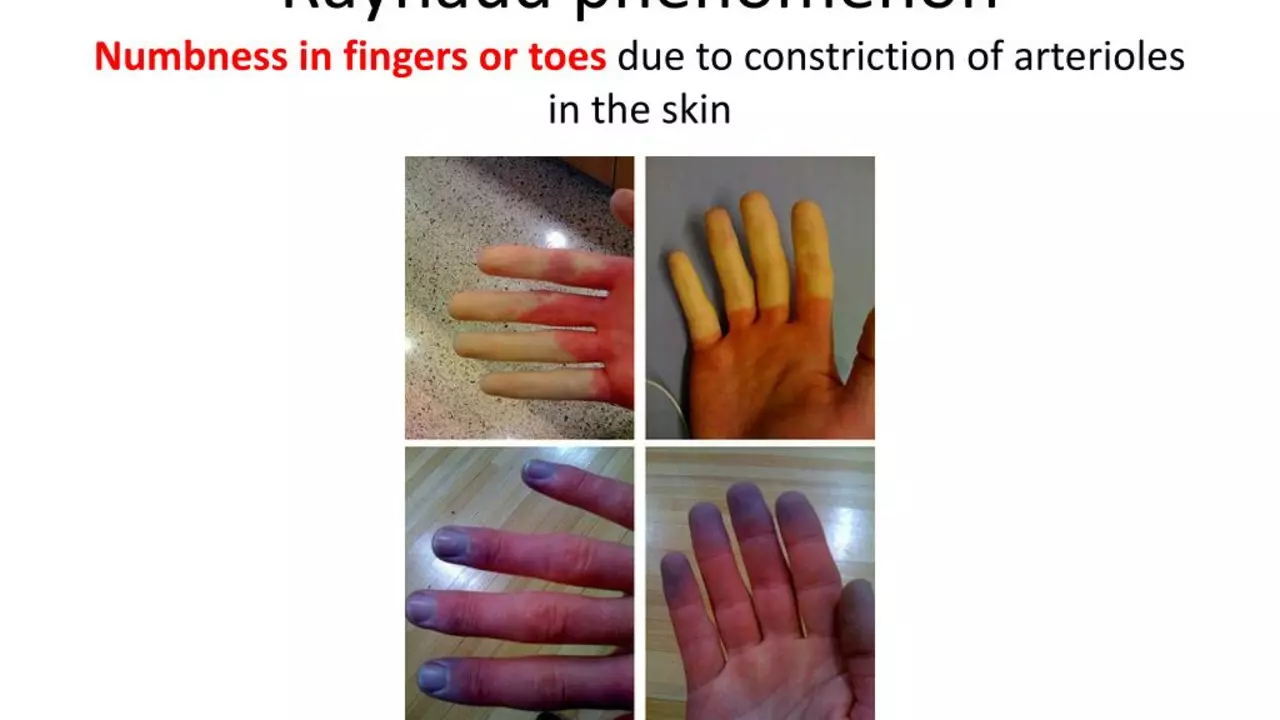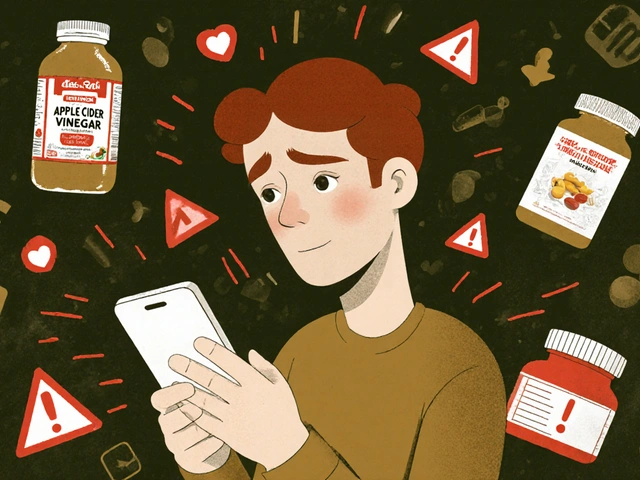Raynaud's phenomenon — what it is and what you can do today
Raynaud's phenomenon happens when small blood vessels in your fingers or toes overreact to cold or stress and temporarily narrow. That sudden change brings the classic color shifts: white (less blood), blue (low oxygen), then red (returning blood). It can be uncomfortable and worrying, but most attacks are short and manageable.
There are two kinds. Primary Raynaud's is the common, milder form that usually starts in younger people and isn’t tied to another disease. Secondary Raynaud's comes from another medical problem — often an autoimmune disease like scleroderma or lupus — and can be more serious, with skin ulcers or tissue damage.
What triggers Raynaud's and how to avoid attacks
Cold is the biggest trigger, but stress, sudden temperature changes, vibration (power tools), and some medications can set off attacks. Practical steps that actually help:
- Keep warm: wear gloves, warm socks, and a hat. Layer clothing so you can trap heat. Use hand warmers when needed.
- Warm up slowly: soak your hands in warm (not hot) water at the first sign of an attack.
- Protect against vibration: if your work uses vibrating tools, use padded gloves and take breaks.
- Stop smoking: nicotine narrows blood vessels and makes symptoms worse.
- Manage stress: breathing exercises or short breaks can reduce stress-triggered attacks.
Also check any medicines you take. Beta-blockers, some migraine drugs, and certain chemotherapy agents can worsen Raynaud's. Ask your prescriber about alternatives if you suspect a drug is involved.
When to see a doctor and medical options
See a doctor if your attacks are severe, more frequent, cause sores or ulcers, or start after age 40. Those signs suggest secondary Raynaud's and need testing. Your doctor may run blood tests (ANA, ESR) and check circulation. Nailfold capillaroscopy — looking at capillaries near the fingernail under a microscope — can spot changes linked to autoimmune disease.
Treatment depends on severity. For mild cases, lifestyle steps are often enough. If attacks interfere with life or cause complications, medications can help. The most used drugs are calcium channel blockers (like nifedipine) which relax blood vessels. Other options include topical nitrates, PDE5 inhibitors (sometimes used off-label), or in very resistant cases, procedures such as Botox injections or surgical sympathectomy.
Protecting skin and preventing infection matter. If you get sores, keep them clean and seek medical care quickly. If your fingers or toes feel numb for long periods, or the skin turns black, go to urgent care.
Small changes often make the biggest difference. Keep your hands warm, avoid nicotine, and get checked if symptoms change or worsen. If you want more on causes, tests, or specific treatments, you can explore our related guides on HeyDoctor.com for deeper reads and practical tips.

- Jun 18, 2023
- Posted by Cillian Osterfield
Azathioprine and the Risk of Raynaud's Phenomenon: A Comprehensive Review
In a recent comprehensive review, I came across some intriguing findings on the relationship between Azathioprine and the risk of Raynaud's Phenomenon. For those who may not know, Azathioprine is an immunosuppressive medication often used in treating autoimmune diseases, while Raynaud's Phenomenon is a condition that causes the blood vessels in extremities to constrict when exposed to cold or stress. According to the review, there seems to be an association between the use of Azathioprine and an increased risk of developing Raynaud's Phenomenon. This is important information for both patients and healthcare providers to consider when weighing the benefits and risks of using Azathioprine. Further research is needed to better understand the underlying mechanisms and potential ways to mitigate this risk.
Categories
- Health and Wellness (72)
- Medications (71)
- Health and Medicine (28)
- Pharmacy Services (12)
- Mental Health (9)
- Health and Career (2)
- Medical Research (2)
- Business and Finance (2)
- Health Information (2)
Latest Posts
©2026 heydoctor.su. All rights reserved





